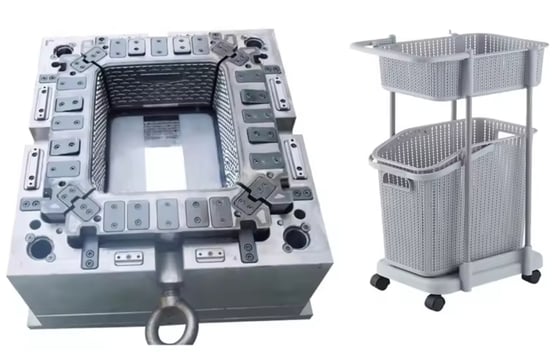Mold Technology: Key to Modern Manufacturing
Discover how mold technology is essential in modern manufacturing, influencing industries such as automotive and consumer electronics. Explore its applications and future trends shaping the industry.
9/18/20242 min read


Mold Technology: Revolutionizing Manufacturing
Mold technology stands as a cornerstone of modern manufacturing, playing a pivotal role in shaping industries ranging from automotive to consumer electronics. This article explores the fundamental aspects of mold technology, its diverse applications, and the future trends shaping its evolution.
Part 1: Understanding Mold Technology
Molds are specialized tools used to shape raw materials into precise forms, essential for producing a wide array of products across industries. The development of mold technology involves sophisticated design, material selection, and manufacturing processes tailored to meet stringent quality and efficiency standards.
1.1 Types of Molds
Molds can be categorized based on their applications:
- Injection Molds: Primarily used in plastics manufacturing, injection molds enable the production of intricate components for consumer goods and industrial applications.
- Die Casting Molds: Critical for producing metal components in automotive and aerospace industries, die casting molds ensure high precision and durability.
- Blow Molds: Used in the production of hollow objects such as bottles and containers from thermoplastic materials.
- Compression Molds: Utilized for molding rubber and composite materials into various shapes, crucial in industries requiring high durability and flexibility.
1.2 Advanced Manufacturing Techniques
Modern mold manufacturing integrates advanced technologies:
- Computer-Aided Design (CAD): Enables precise modeling and simulation of mold designs, optimizing performance and reducing lead times.
- Additive Manufacturing: 3D printing technologies are increasingly used to prototype molds quickly and cost-effectively, accelerating innovation cycles.
- High-precision Machining: CNC machining and EDM processes ensure intricate details and surface finishes, crucial for achieving tight tolerances in mold production.
Part 2: Applications Across Industries
Mold technology finds extensive applications in key industries:
2.1 Automotive Industry
In automotive manufacturing, molds are indispensable for producing components such as engine parts, interior panels, and exterior body parts. Advanced mold designs enhance vehicle performance, safety, and aesthetics.
2.2 Electronics and Consumer Goods
From smartphones to home appliances, mold technology enables the mass production of plastic enclosures and components with precise dimensions and functional requirements. Rapid advancements in mold materials and technologies support the development of innovative consumer products.
2.3 Medical and Healthcare
Medical device manufacturers rely on molds for producing sterilizable components and intricate parts used in diagnostic equipment and surgical instruments. Precision molding ensures compliance with strict regulatory standards and patient safety.
2.4 Aerospace and Defense
The aerospace sector utilizes molds for manufacturing complex components and structural parts, leveraging high-strength materials and advanced manufacturing processes to meet rigorous performance and safety requirements.
Part 3: Future Trends in Mold Technology
The future of mold technology is characterized by ongoing innovations:
3.1 Industry 4.0 Integration
Smart manufacturing initiatives integrate IoT devices and data analytics to optimize mold performance, enhance predictive maintenance, and reduce production downtime.
3.2 Sustainability Initiatives
Manufacturers are increasingly adopting eco-friendly materials and processes to minimize environmental impact. Recyclable molds and energy-efficient manufacturing techniques contribute to sustainable production practices.
3.3 Customization and Personalization
Advancements in mold design software and additive manufacturing technologies enable the customization of molds for small-batch production and personalized consumer products.
Conclusion
Mold technology continues to evolve as a critical enabler of manufacturing innovation and efficiency across diverse industries. By embracing digitalization, sustainability, and advanced manufacturing techniques, mold manufacturers can drive future growth and competitiveness in the global market. This article provides insights into the transformative impact of mold technology and highlights emerging trends shaping its future trajectory.
---
This variation provides a comprehensive overview of mold technology, emphasizing its applications across industries and future trends driving innovation and efficiency in manufacturing processes.
